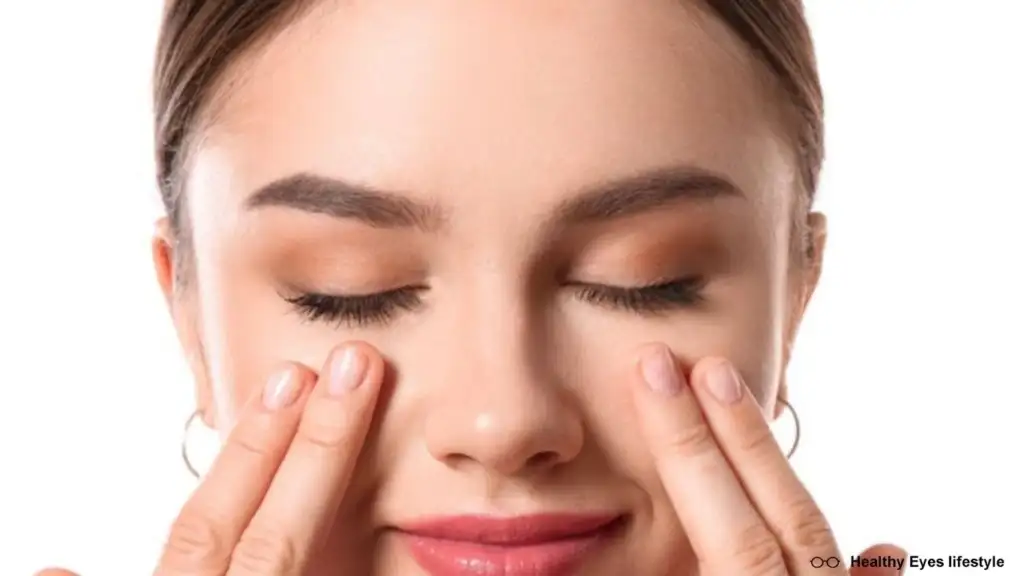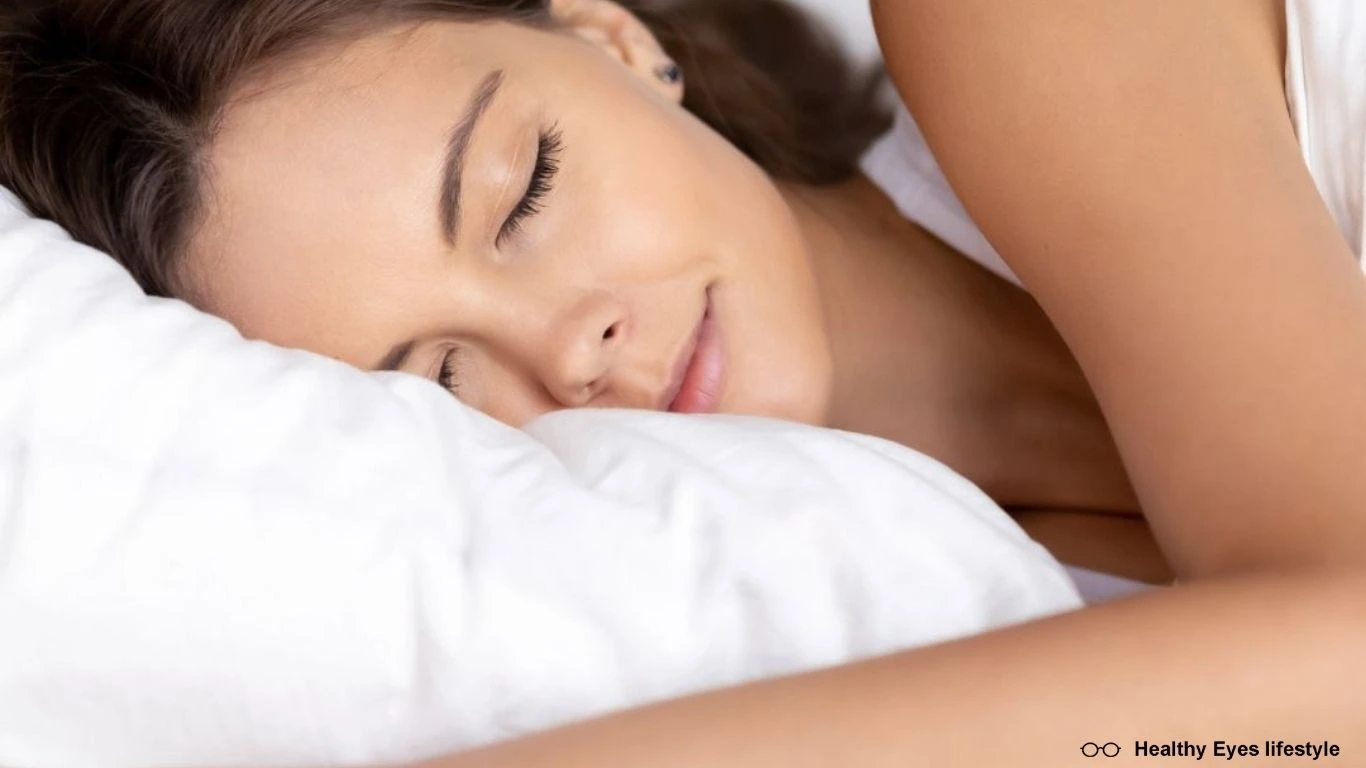Share This Article
Table of Contents
1. Introduction
Sleep is a vital part of our overall health, affecting everything from brain function to immune response. Yet, one of the lesser-known benefits of a good night’s sleep is its positive impact on maintaining healthy vision. Your eyes, like the rest of your body, need rest to repair and rejuvenate. This article will explore the connection between sleep and vision, providing practical advice on how sleep quality can enhance eye health and prevent long-term vision problems.

2. Sleep and Eye Health
To understand the role of sleep in maintaining good vision, it’s essential to understand what happens during sleep. While you sleep, your body enters various stages, ranging from light to deep sleep and REM (rapid eye movement) sleep. Each stage serves a unique function, not only for cognitive recovery but also for physical healing.
When you sleep, your eyes experience reduced strain, repair tissue damage caused by daily exposure to environmental stressors like UV light, and rehydrate to maintain moisture levels. This process is crucial because, during the day, our eyes are exposed to constant work—staring at screens, reading, driving, or simply being exposed to light. These activities can cause eye strain, and sleep provides the necessary recovery time.
3. Sleep Deprivation and Vision Problems
Sleep deprivation can have a detrimental effect on eye health. Lack of sleep is linked to several vision-related problems, including:
- Dry Eye Syndrome: Inadequate sleep reduces the production of tears, which lubricate the eyes and prevent dryness. This condition can cause irritation, discomfort, and blurred vision.
- Eye Twitching: Lack of sleep can trigger myokymia, an involuntary eye twitch that can be both irritating and distracting.
- Blurred Vision: When the eyes are fatigued, they cannot focus as effectively, leading to temporary blurred vision. This can be dangerous, particularly when performing tasks such as driving.
- Increased Risk of Eye Diseases: Chronic sleep deprivation is associated with an increased risk of eye diseases such as glaucoma, which can lead to vision loss if untreated.
Table 1: Common Vision Problems Linked to Sleep Deprivation
| Vision Problem | Symptoms | Potential Cause |
| Dry Eye Syndrome | Redness, irritation, burning sensation | Reduced tear production |
| Eye Twitching (Myokymia) | Involuntary muscle spasms around the eyes | Eye fatigue due to lack of sleep |
| Blurred Vision | Difficulty focusing, hazy vision | Fatigued eye muscles |
| Increased Glaucoma Risk | Vision loss, pressure in the eyes | Increased intraocular pressure (IOP) |
“Sleep is the golden chain that ties health and our bodies together.”
“A good laugh and a long sleep are the best cures in the doctor’s book.”
4. How Different Sleep Stages Impact Eye Health
Sleep cycles include several stages, each with distinct roles:
- NREM Sleep (Non-Rapid Eye Movement): This phase is crucial for physical repair and is when tissue regeneration occurs. During this stage, the eyes rest fully, reducing strain and fatigue.
- REM Sleep: This stage is particularly important for brain activity and memory consolidation, but it also has a unique connection to eye health. During REM, the eyes move rapidly, which is believed to help with the circulation of essential fluids and nutrients around the eyes.

5. The Importance of REM Sleep for Vision
REM sleep, although more commonly associated with dreaming and memory consolidation, plays an essential role in maintaining eye health. During this stage, the movement of your eyes helps to distribute vital nutrients to various parts of the eye. This circulation of nutrients is crucial for maintaining the retina’s health and preventing eye conditions like macular degeneration.
Insufficient REM sleep can disrupt this nutrient distribution, potentially leading to vision issues over time. Studies show that people who get adequate REM sleep are less likely to experience severe eye conditions, which is one of the reasons why achieving quality sleep is just as important as getting enough sleep.
6. Sleep Disorders and Their Effects on Eye Health
Sleep disorders, such as insomnia, sleep apnea, and restless leg syndrome, can all negatively impact your vision. These disorders reduce the amount of sleep you get and can interfere with the restorative processes that occur during sleep.
- Sleep Apnea: Individuals with sleep apnea often have low oxygen levels during the night. This oxygen deprivation can affect the blood flow to the optic nerve, increasing the risk of glaucoma.
- Insomnia: Difficulty falling asleep can lead to chronic sleep deprivation, which, as previously mentioned, has a range of negative effects on eye health, including dryness, irritation, and increased risk of more serious eye conditions.
- Restless Leg Syndrome (RLS): RLS interrupts sleep cycles and prevents individuals from reaching the deeper stages of sleep, including REM, which is necessary for the eye’s health.
Table 2: Impact of Sleep Disorders on Eye Health
| Sleep Disorder | Eye-Related Symptoms | Long-Term Impact |
| Sleep Apnea | Increased eye pressure, blurry vision | Higher risk of glaucoma |
| Insomnia | Dry eyes, eye strain | Chronic irritation, vision problems |
| Restless Leg Syndrome | Sleep disruption, poor eye fluid circulation | Potential nutrient deficiency in the eyes |

7. Tips for Improving Sleep for Better Vision
Here are some actionable tips to improve your sleep quality and protect your vision:
- Follow a Consistent Sleep Schedule: Going to bed and waking up at the same time every day helps regulate your body’s internal clock, ensuring you get enough restorative sleep.
- Create a Sleep-Friendly Environment: Ensure your bedroom is dark, quiet, and cool. Limit screen time before bed to prevent eye strain and interference with melatonin production.
- Hydrate Your Eyes: If you suffer from dry eyes, use eye drops before bed to keep your eyes hydrated throughout the night.
- Limit Caffeine and Alcohol: Both substances can interfere with your sleep patterns and leave your eyes feeling dry and strained in the morning.
8. Conclusion
Sleep is essential for maintaining good vision and overall eye health. Chronic sleep deprivation can lead to a variety of vision problems, including dry eyes, blurred vision, and an increased risk of eye diseases like glaucoma. Ensuring you get enough sleep, particularly REM sleep, will help maintain healthy eyes and prevent long-term damage. By understanding the connection between sleep and eye health, you can make more informed decisions to protect your vision.
9. FAQs
1. Can poor sleep really cause permanent vision loss?
Yes, chronic sleep deprivation can lead to conditions like glaucoma or optic neuropathy, which, if untreated, can result in permanent vision loss. It’s essential to prioritize sleep to protect your eyes in the long term.
2. How many hours of sleep do I need for good eye health?
The National Sleep Foundation recommends adults get 7-9 hours of sleep per night to maintain both overall health and optimal eye function. This ensures your eyes have enough time to rest and repair.



